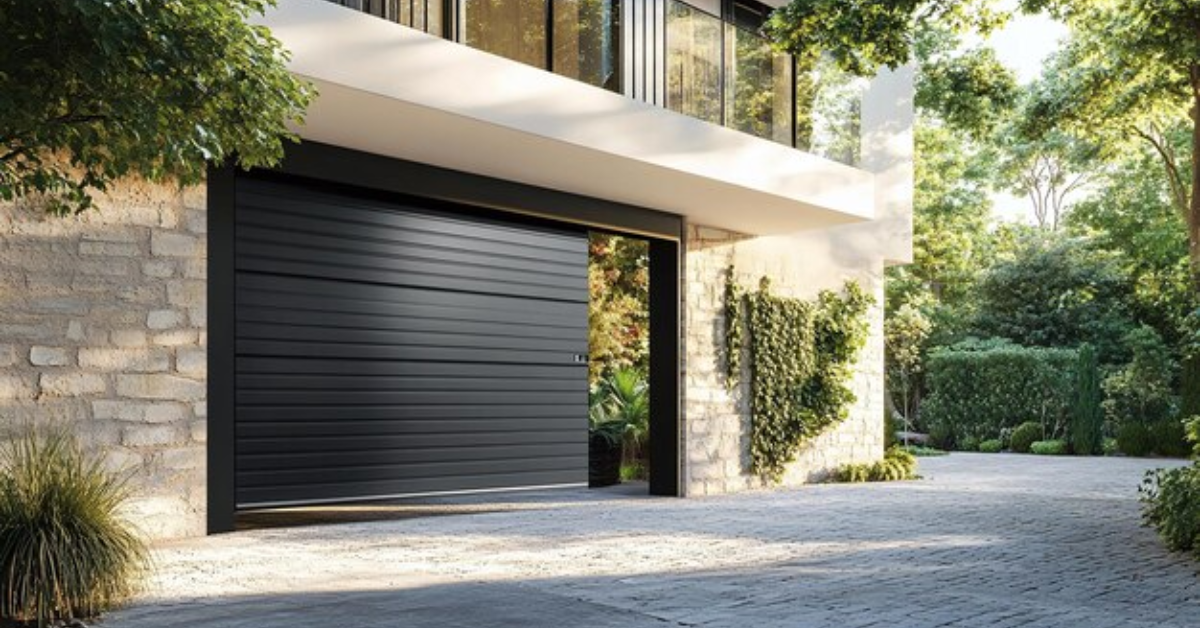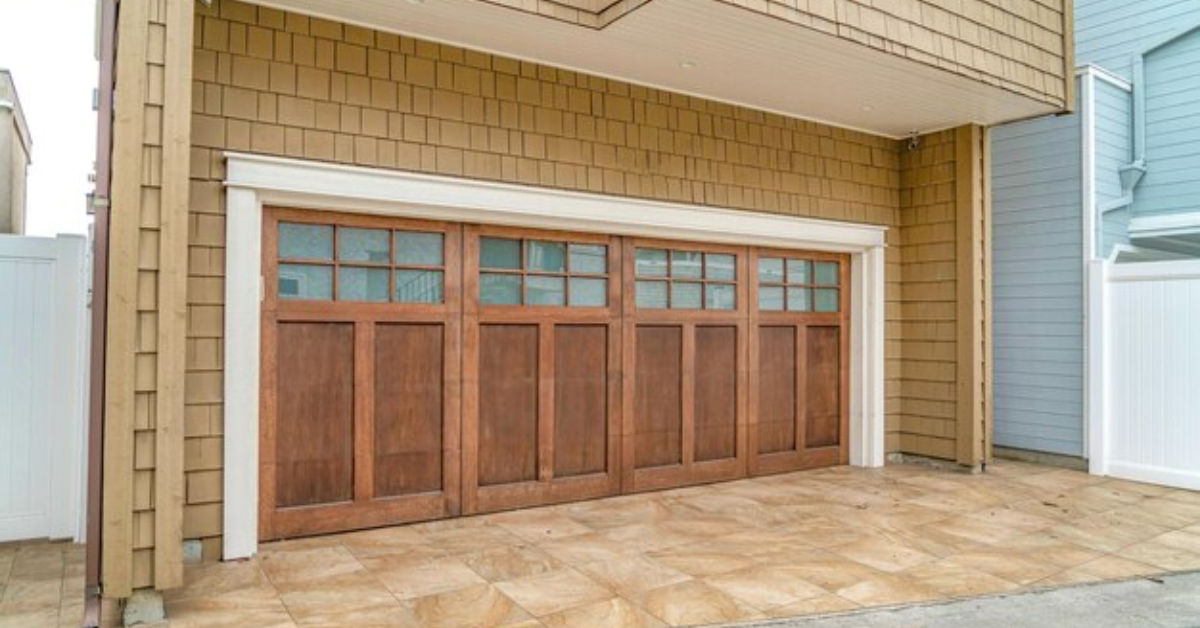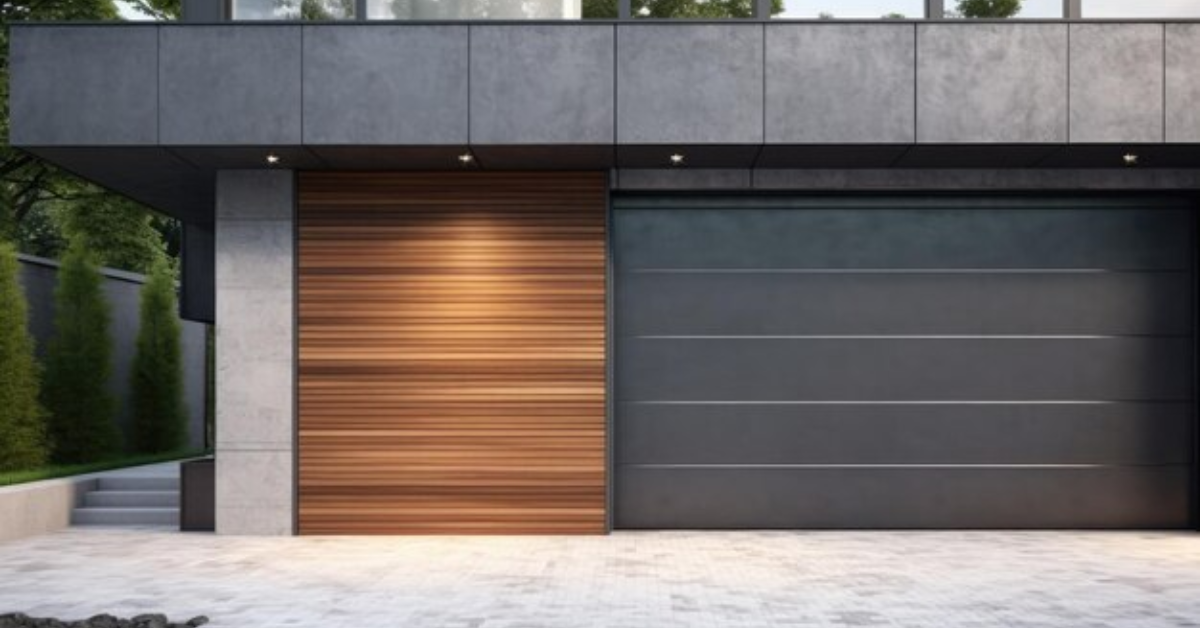Which Garage Doors Are The Most Secure For My Home?
In terms of home security, the garage door is often overlooked, yet it plays a crucial role in protecting you and your family. Choosing a secure garage door can make a significant difference in safeguarding your home from intruders and other risks. In this guide, we'll explore the different types of garage doors available, discuss their security features, and help you decide which options might be the most secure for your home.
Why Garage Door Security Matters
Many homeowners use their garage as an entry point into their home, making it a common target for break-ins. In addition to storing vehicles, garages often house tools, bikes, and valuable items. A weak or outdated garage door can be an easy access point for burglars. By investing in a secure garage door, you can help prevent unauthorized access and provide an additional layer of protection for your home and belongings.
Which Garage Door Type Is Right for You?
Choosing the most secure garage door depends on your specific needs, climate, and home style. For ultimate security, a steel roller door or sectional steel door with smart security features is an excellent choice. If you prefer a classic look, a reinforced wooden garage door with integrated security features can provide the necessary strength and beauty. Aluminum doors are ideal if you need a rust-resistant option, while fiberglass works well in coastal or humid areas.
Key Features to Look for in a Secure Garage Door
Before diving into specific types of garage doors, let’s look at the features that make a garage door secure:
- Sturdy Materials: Strong materials like steel or reinforced aluminum provide durability and are harder to break into than wood or thin metals.
- Heavy-Duty Locks: A secure garage door should have heavy-duty locks, ideally more than just a latch. Deadbolts or additional locking mechanisms can add protection.
- Automatic Locks: Some modern garage doors come with automatic locking systems that engage when the door closes, preventing intruders from lifting the door manually.
- Rolling Code Technology: This technology changes the entry code every time the door opens, making it difficult for hackers to gain access.
- Reinforced Panels: Reinforced panels add strength, making it more difficult to kick in or force open.
- Smart Security Integration: Some garage doors can be integrated with smart security systems, allowing you to monitor and control access remotely.
Now, let’s explore which garage door types incorporate these features and provide the best security for your home.
1. Steel Garage Doors
Steel garage doors are among the most secure types available due to their strength and durability. Steel is difficult to dent, crack, or break, making it a challenging material for intruders to manipulate. High-quality steel doors often come with reinforced panels and are resistant to extreme weather, further enhancing security.
Many steel garage doors can be fitted with rolling code technology and smart lock features, allowing you to monitor and secure your garage door from your smartphone. Look for models with multi-layer construction and insulation to boost strength.
Steel doors are low-maintenance, although they may be prone to rust in coastal or humid areas. Opt for galvanized steel to minimize rusting.
2. Fiberglass Garage Doors
Fiberglass garage doors are lightweight and durable, making them a solid choice for security. Fiberglass is also resistant to moisture, which prevents rotting and warping over time. While fiberglass may not be as strong as steel, high-quality models with reinforced steel frames can offer considerable protection.
Many fiberglass doors come with insulated cores, which adds stability. Fiberglass can also mimic wood, offering a stylish yet secure option for homeowners looking for an aesthetically pleasing garage door.
Fiberglass is highly resistant to moisture, making it a low-maintenance choice, especially for humid or coastal climates.
3. Aluminum Garage Doors
Aluminum is another durable material that offers a level of security similar to steel. Modern aluminum doors are often reinforced with steel for added strength, making them resistant to impact and forced entry. Aluminum doors are also rust-resistant, which can be an advantage in humid climates. Aluminum garage doors are typically lightweight and can be outfitted with security upgrades such as automatic locking systems and smart technology integration.
Aluminum doors require minimal upkeep but can dent more easily than steel. Opt for a reinforced aluminum model if security is your main concern.
4. Wooden Garage Doors with Reinforcement
While wood is naturally more vulnerable than steel or aluminum, reinforced wood garage doors offer a secure option with a traditional aesthetic. Many wood garage doors are reinforced with steel or fiberglass layers to add strength and durability, creating a door that combines the charm of wood with the security of a stronger material. Reinforced wooden doors can include rolling code technology, automatic locks, and smart integration to boost security.
Wood requires more maintenance, including regular sealing or staining to prevent moisture damage. If properly maintained, a reinforced wooden door can be a secure, long-lasting option.
5. Roller Garage Doors
Roller garage doors are highly secure as they consist of multiple horizontal slats that roll up into a compact drum. When closed, roller doors form a tight seal, making it difficult for intruders to pry open or lift. Roller doors are typically made from steel or aluminum, adding to their security benefits. Many roller doors come with automatic locking mechanisms and can be paired with smart garage door openers for added convenience and control.
Roller doors require minimal maintenance but should be checked regularly to ensure the slats and tracks remain in good condition.
6. Sectional Garage Doors
Sectional garage doors are composed of multiple panels that open vertically, making them difficult to force open. They’re often made from steel, aluminum, or reinforced wood, all of which provide high levels of security. Sectional doors also fit snugly into the door frame, reducing potential entry points for burglars. Sectional doors can be equipped with smart features, rolling code technology, and deadbolt locks to enhance security. Many models are available with insulation, adding strength and energy efficiency. These doors are easy to maintain, with each panel being replaceable if damaged.
Final Tips for Enhancing Garage Door Security
Beyond choosing the right door, consider these tips to improve garage security:
- Install security cameras around the garage entrance.
- Use motion-sensor lights to deter intruders at night.
- Keep your garage door remote secure, especially if it’s in your car.
- Regularly inspect and maintain your garage door to ensure it’s functioning correctly.
A secure garage door is a critical component of a well-protected home. By selecting the right materials, security features, and incorporating additional protective measures, you can significantly improve the safety of your home and enjoy peace of mind.




